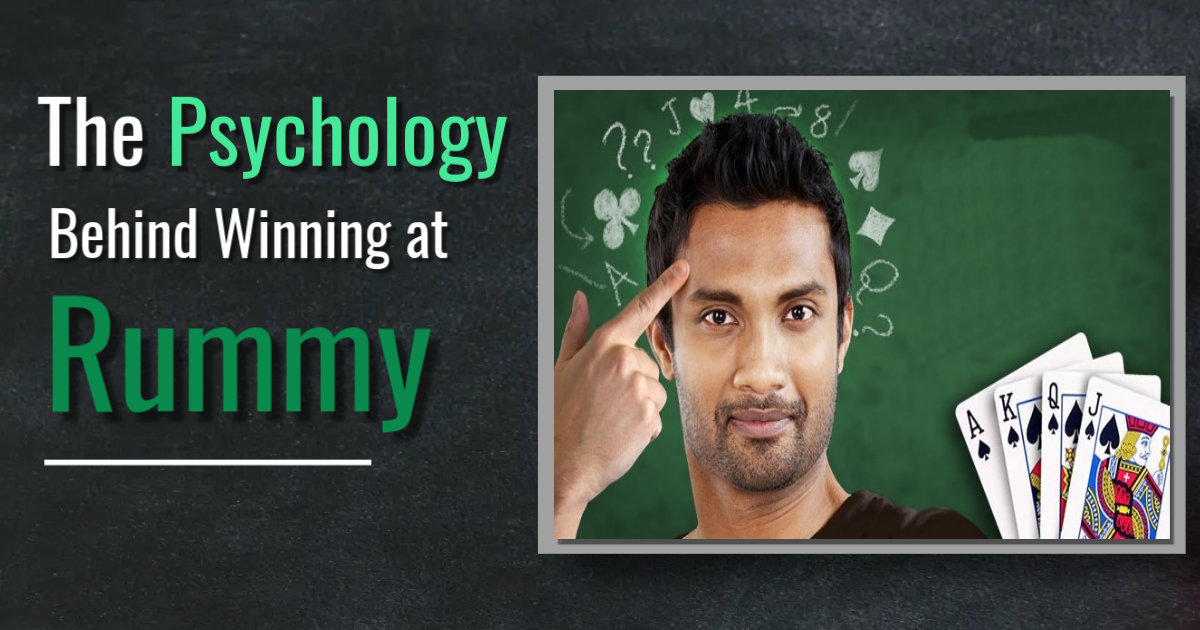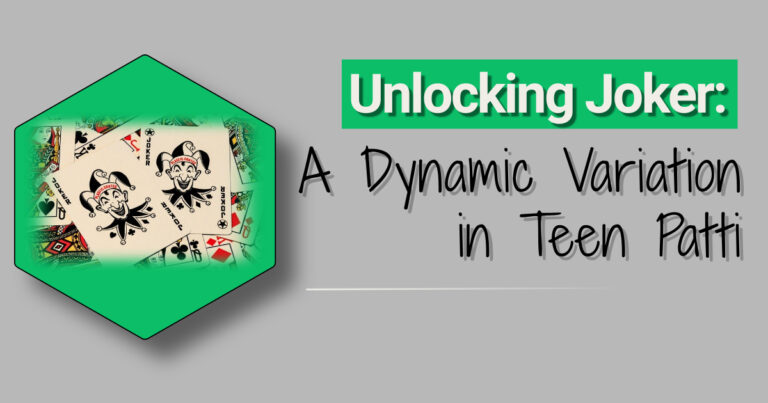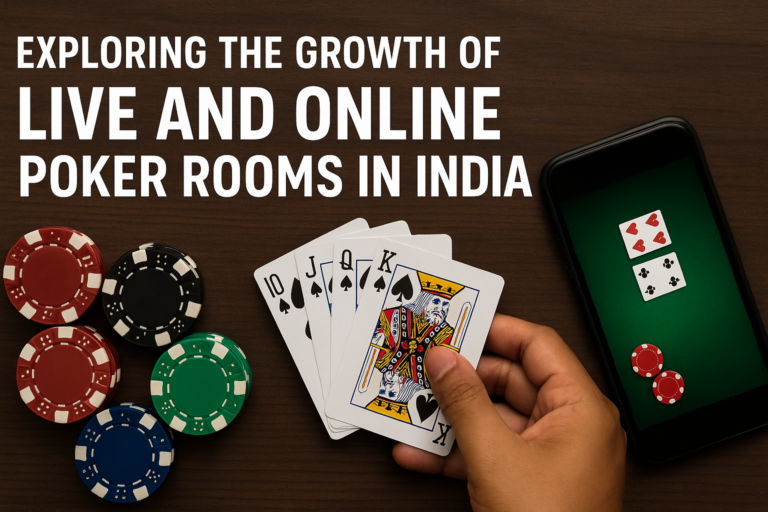The Psychology Behind Winning at Rummy
Successful Rummy is not just a game of chance but one of skill and mental fortitude. Understanding the psychology behind winning at Rummy is essential for any player aiming to improve their performance and consistently outplay their opponents. In this article, we will explore the various psychological aspects that contribute to a player’s success at Rummy games, including focus, emotional control, decision-making, and understanding your opponent.

The Importance of Focus
One of the key elements to winning at Rummy is focus. The game requires intense concentration, especially as the game progresses and the stakes become higher. Players must stay attentive, continuously monitor their cards, and remain aware of the cards being picked and discarded by opponents.
Losing focus for even a brief moment in Teen Patti Stars can result in missed opportunities, such as failing to spot a crucial card that could complete a meld, or overlooking an opponent’s discarded card that could signal their strategy. Successful Rummy players have developed a strong ability to concentrate for extended periods, ensuring they do not make careless mistakes.
Training yourself to maintain a sharp focus throughout the game can give you a significant edge over opponents who may be prone to lapses in attention, especially during longer sessions. Focus also helps in observing and understanding patterns in your opponents’ play, leading to better decision-making and anticipating their moves.
Emotional Control
Another psychological trait of successful Rummy players is emotional control. In any card game, there will be moments when things don’t go as planned—perhaps you’re dealt a poor hand, or an opponent unexpectedly wins a round. In these situations, it’s easy to become frustrated, anxious, or overly confident. However, losing emotional control can lead to poor decision-making and rash moves.
Successful Rummy is a game where patience is often rewarded, and emotional control is a part of that patience. Seasoned players understand that each hand is just a part of a larger strategy, but mastering strategies for beginners is key to building a strong foundation in the game. They don’t panic when the cards aren’t in their favor, nor do they become overconfident when they’re in the lead. Instead, they maintain a calm demeanor and adjust their strategy as needed.
Developing emotional resilience ensures that even when the game gets tense, you can think logically and stay focused on your long-term goals. This emotional control allows you to play consistently well, even under pressure.
Successful Rummy: Strategic Decision-Making
Winning at Rummy often boils down to making the right decisions at the right time. This requires not only an understanding of the game’s rules but also the ability to think several moves ahead, much like in chess. The best players consider the potential outcomes of every decision they make, from the cards they pick to the ones they discard.
At every point in the game, players must decide which cards to retain and which to discard. Holding on to too many high-value cards for too long can be a risky strategy, as it increases the points you lose if an opponent declares. On the other hand, discarding valuable cards too early, as seen throughout the history of rummy, could benefit your opponents. This delicate balance of risk and reward is a core element of strategic decision-making in successful Rummy.
Moreover, effective decision-making requires players to remain adaptable. A good Rummy player knows when to switch strategies based on the situation at hand. For example, if an opponent is close to completing their sets or sequences, you might need to change your approach, focusing more on defensive play by avoiding discards that could help them. Being able to pivot and adapt your strategy as the game unfolds is a hallmark of successful Rummy players.
Understanding Your Opponent
Psychological insight into your opponent’s behavior is a critical component of winning in Rummy. Skilled players pay close attention to the actions of their opponents—their patterns of picking and discarding cards, their body language (in live games), and even their betting behavior (in certain variants). This information can be used to anticipate their next moves and strategize accordingly.
For example, if you notice that an opponent consistently avoids picking certain suits from the discard pile, it could indicate that they’re not working on building a set or sequence in those suits. Conversely, if they quickly pick up a particular card, it might signal that they’re close to completing a meld involving that suit.
In addition to these observations, skilled players often engage in bluffing or misleading behaviors to throw off their opponents. Discarding cards that seem harmless but are actually critical to your strategy can create confusion and lead your opponent to make mistakes. The mental games played between opponents are as crucial to success in rummy skills as the cards themselves.

Risk Management
Understanding and managing risk is another psychological element that plays a significant role in successful Rummy. Every decision in the game carries a degree of risk, whether it’s choosing which card to draw, which one to discard, or deciding when to go for a win. Skilled players are able to assess the risks and rewards of each decision, ensuring that they minimize potential losses while maximizing their chances of success.
For example, holding onto a Joker can be a powerful strategy, as it allows for flexibility in creating melds. However, holding onto it for too long can be risky if the game moves quickly and an opponent declares before you’ve had a chance to use it. Understanding when to hold onto cards and when to let them go is a key aspect of effective risk management in successful Rummy.
Similarly, assessing the risk involved in discarding cards is crucial. You might hold a card that you don’t need, but discarding it could potentially help your opponent complete a meld. Successful players often discard cards strategically, weighing the risk of assisting their opponents against the benefit of improving their own hand.
Patience and Timing
Patience is another critical psychological trait for success in Rummy. The game rewards players who are willing to wait for the right opportunities rather than rushing to make moves. Successful Rummy is a game where a premature declaration or an ill-timed discard can cost you dearly. Experienced players know that waiting for the right card or biding their time before making a big move can often be more beneficial than acting too quickly.
Timing is equally important. Knowing when to speed up your play, especially when an opponent is close to winning, can add pressure and force them into mistakes. Alternatively, slowing down your play and focusing on defensive strategies can help prolong the game and give you more time to complete your hand.
The Role of Practice and Experience
While understanding the psychology behind successful Rummy can certainly improve your game, nothing replaces the value of practice and experience. The more you play, the better you will become at reading situations, anticipating your opponent’s moves, and managing your own mental state during play.
Experienced players in variations of rummy have typically developed strong instincts for the game, knowing when to take calculated risks and when to play it safe. They have also learned from past mistakes and successes, building a reservoir of knowledge that helps them navigate the complexities of successful Rummy with greater ease.
Conclusion
Winning at successful Rummy involves far more than just luck; it requires a combination of focus, emotional control, strategic decision-making, and psychological insight into your opponents. By developing these skills and honing your mental approach to the game, you can significantly increase your chances of success.








